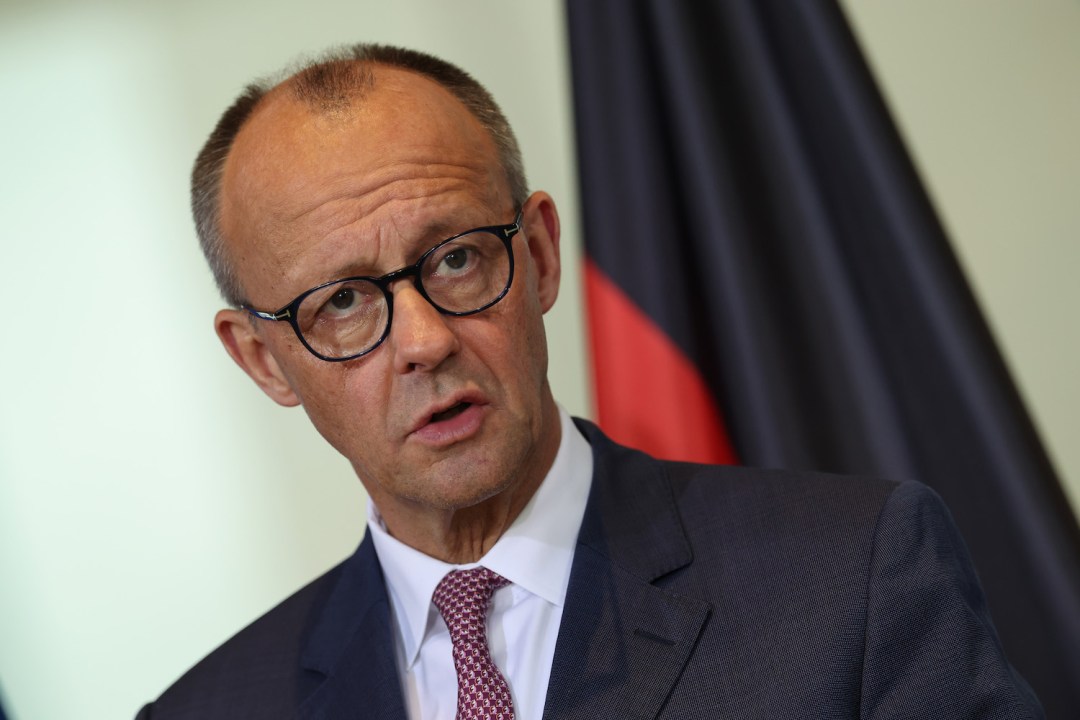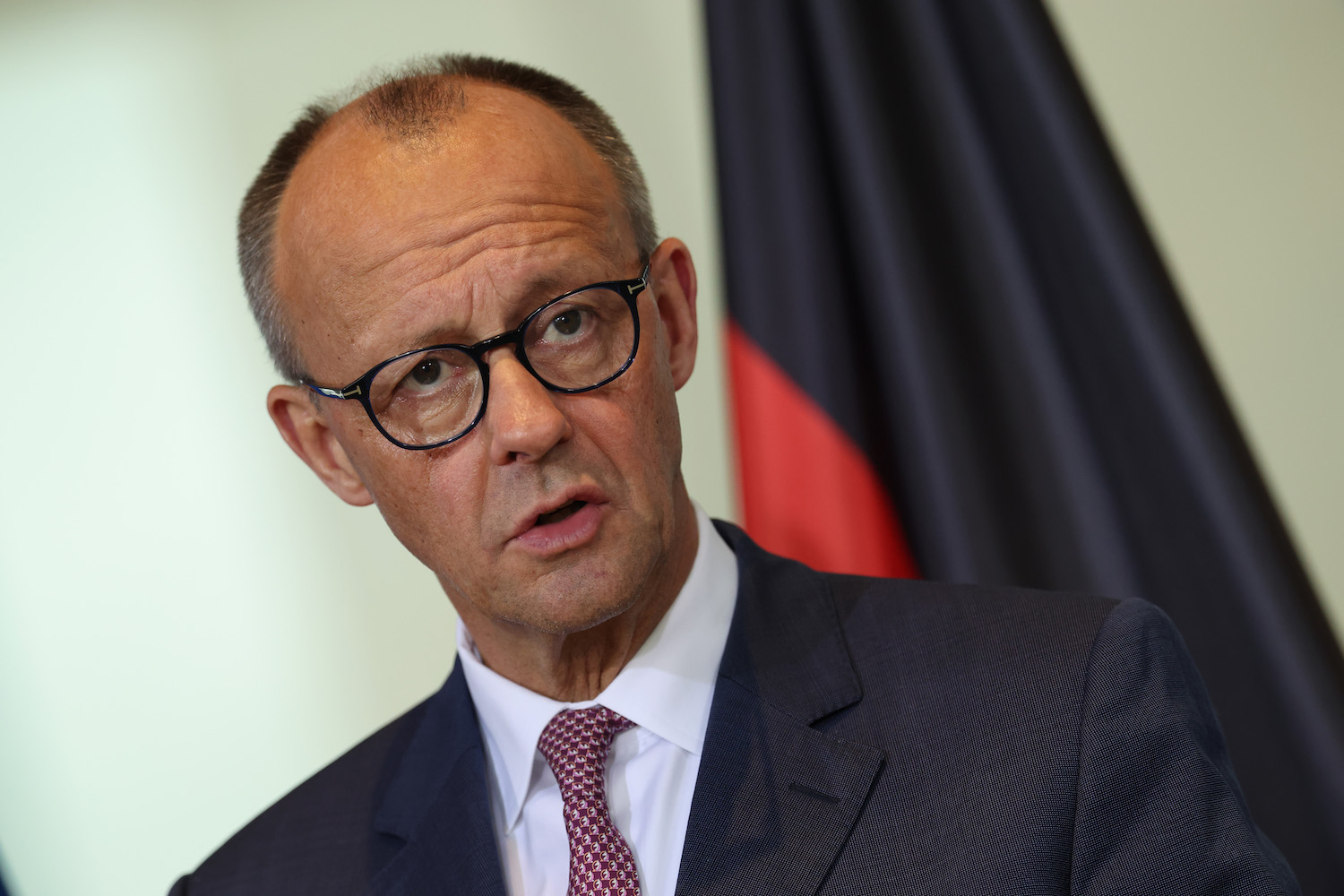Two days. That’s how long Friedrich Merz’s signature border policy survived before walking into a perfectly laid ambush. While international economists celebrate Germany’s potential economic resurgence under new leadership, the country’s Chancellor is discovering that electoral victories mean little when faced with opponents who don’t need votes to wield power. The weapon of choice? Legal challenges so precisely timed and coordinated they make Swiss clockwork look amateur. Just as the OECD forecasts Germany’s potential return as Europe’s economic powerhouse, Merz finds himself outmanoeuvred not by coalition partners or opposition politicians, but by advocacy organisations whose resources and coordination capabilities would impress military strategists – opposition far more sophisticated than traditional democratic accountability.
The irony is striking. While the OECD predicts Germany could achieve 1.2 per cent growth in 2026 – a remarkable turnaround from years of stagnation – Merz’s administration is discovering that governing requires navigating institutional opposition that operates outside traditional parliamentary constraints. The OECD’s optimistic projections hinge largely on the government’s promised €500 billion infrastructure investment programme and increased defence spending, yet implementing these very policies requires the kind of political authority that legal challenges are designed to erode.
The most immediate challenge comes from an unexpected quarter: a coordinated legal assault on border controls. Berlin’s Administrative Court has declared the government’s border return policy unlawful, but the circumstances surrounding this ruling reveal something far more troubling than spontaneous litigation. The case involved three Somali nationals who made multiple border crossing attempts – initially unsuccessful due to their failure to claim asylum, then successful only after being equipped with legal representation, new clothing, and mobile phones by activist networks spanning both Poland and Germany.
The timeline is particularly revealing. After Minister Alexander Dobrindt announced enhanced border controls on 7 May, these same individuals crossed again just two days later via a heavily monitored train route, virtually guaranteeing detention. Immediately upon apprehension, a German lawyer appeared with pre-prepared legal documents, suggesting either real-time coordination or predetermined signals between the migrants and their legal support network. This level of organisation points to systematic testing of government policy rather than individual desperation.
The Head of Cabinet Office Thorsten Frei’s response – acknowledging the need for better legal foundations while insisting the policy remains ‘lawful’ – reveals the government’s precarious position. When senior officials must simultaneously defend and modify a cornerstone policy within weeks of taking office, it suggests insufficient preparation for the sophisticated opposition they now face. And leaves a sour taste.
The involvement of prominent left-wing migration advocacy organisations, like Pro Asyl, coordinating across national borders and apparently with substantial resources, suggests this represents the opening salvo in a sustained campaign rather than isolated legal challenges.
Migration researchers now predict that similar court cases will cascade through the system, potentially creating a ‘domino effect’ of adverse rulings. Given the apparent coordination behind the initial case, such predictions may prove conservative. As one expert noted, the government faces the prospect of losing ‘all cases that come before the courts, up to the European Court of Justice.’ This isn’t merely an administrative inconvenience – it’s evidence of systematic institutional resistance to democratic policy choices.
Germany’s European partners are watching these developments with growing unease
More troubling for Merz is the reaction from his Social Democratic coalition partners. While the SPD publicly maintains solidarity, there are clear signs of discomfort with the border policy’s legal foundation. The party’s emphasis on ‘legal certainty’ for police officers and ‘compliance with European law’ reads as coded criticism of the current approach. When coalition partners begin demanding policy adjustments within the government’s first months, it signals deeper ideological fractures that organised opposition can exploit.
The OECD’s economic optimism comes with significant caveats that extend beyond fiscal policy. The organisation’s growth projections depend heavily on the government’s ability to implement structural reforms alongside its spending programmes, but also on maintaining political stability and institutional credibility. Simply throwing money at infrastructure won’t suffice – Germany needs genuine regulatory reform, reduced bureaucracy, and improved business conditions to oncde again make its market attractive. Yet the coalition agreement suggests precious little appetite for the painful decisions required, while systematic legal challenges threaten to consume political capital needed for broader reforms.
The spending commitments themselves reveal the government’s limitations. The €500 billion infrastructure fund and increased defence expenditure represent classic German solutions: substantial investment without fundamental reform. This approach worked during the post-war economic miracle, but today’s challenges – from demographic decline to industrial transformation – require more than financial largesse.
Perhaps most concerning is how these orchestrated challenges play into the hands of the far-right Alternative for Germany. The AfD has positioned itself as the authentic voice of those frustrated with mainstream politics’ failure to address migration concerns. Every strategically timed court ruling against the government’s border policy, every coalition compromise that dilutes reform ambitions, provides ammunition for populist narratives about establishment incompetence and reinforces perceptions within the electorate that democratic governance has been captured by unaccountable advocacy networks.
The government’s response to this coordinated opposition is particularly telling. Rather than acknowledging the systematic nature of the challenge and developing comprehensive counter-strategies, officials promise to provide better justifications for continuing the same approach. This suggests a concerning underestimation of both the sophistication and resources of their opponents – precisely the kind of institutional naivety that extremist parties exploit.
Germany’s European partners are watching these developments with growing unease. The country’s potential economic revival could indeed help stabilise the continent, but only if accompanied by effective governance capable of withstanding institutional capture. A Germany paralysed by coalition infighting and systematic legal obstruction offers little leadership to a continent facing multiple crises. The stakes extend far beyond domestic German politics – Europe’s stability may well depend on whether democratic governments can maintain authority over policy implementation.
Merz came to power promising to reinstate strong borders and restore Germany’s international standing and economic dynamism. The two main issues that led to the AfD gaining territory. The building blocks for success exist, yet translating these advantages into effective governance will be difficult.








Comments